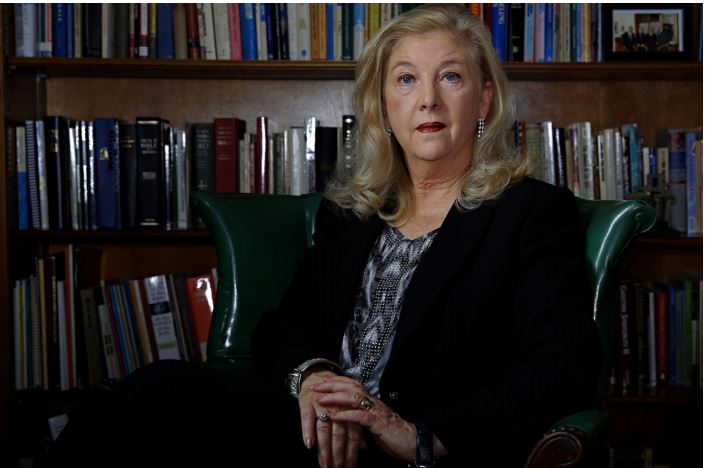Domestic Violence Awarness Article Features Dr. Stevenson-Moessner
Dr. Stevenson-Moessner cautions against blaming victims for not coming forward.
Religious leaders try to break silence about domestic violence on abuse among flock
By Diane Jennings
Here in what some call the “buckle of the Bible Belt,” the faithful regularly flock to houses of worship for guidance. Dedicated clergy preach about forgiveness and gratitude, the need to help the poor or comfort the grieving.
But religious leaders — in churches, synagogues or mosques — rarely address what to do if Mom or Dad try to kill each other.
A recent survey by Christian-based LifeWay Research showed that almost two-thirds of 1,000 Protestant pastors said they speak about domestic violence once a year or less.
“When there are things we don’t talk about, this is one of them,” said Michael McKee, bishop of the North Texas Conference of the United Methodist Church.
Academics call it the “Holy Hush.”But faith can be a powerful recovery tool, so local shelter workers are trying to break the clergy’s reluctance to deal with family violence by pushing them to recognize the problem, get training to address it and bring attention to it by preaching about it.
Many pastors want to do more to help domestic violence victims but say they need more training.“We will always have this problem,” said Dr. Marie Fortune, a United Church of Christ minister who founded the Faith Trust Institute, which works to educate clergy about domestic violence. “But what we’re working toward is making it rare and unusual.”
. . .
Long list of fears
In addition to fearing they won’t be believed, victims are often reluctant to talk to their spiritual leader because they may not be ready to leave; they may worry about their abuser losing his job or going to jail; and they may feel ashamed their marriage falls short of the religious ideal.
 |
| Dr. Jeanne Stevenson-Moessner, professor of pastoral care at Perkins School of Theology at Southern Methodist University. (G.J. McCarthy/Staff Photographer) |
Dr. Jeanne Stevenson-Moessner, professor of pastoral care at Perkins School of Theology at Southern Methodist University, cautioned against blaming victims for not coming forward.
“They are surviving,” she said. “They keep things under control so the abuser won’t kill them.”
Women of faith are no more likely than secular women to be victims of domestic violence, said Dr. Nancy Nason-Clark, who studies abuse, faith, gender and culture at the University of New Brunswick in Canada. “But the journey after violence has occurred can be very different for women of deep religious commitment.” . . .
###